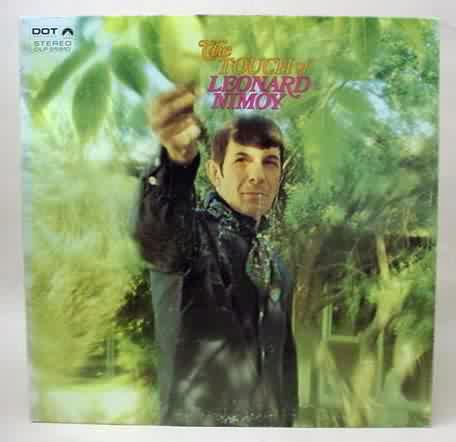Get the semi-autobiographical
Bildungsroman stuff out of your system first, then start to play with the genre. That’s the rule for novelists, although even as I write it, I can hear you bellowing the exceptions. But think of Joyce using
A Portrait Of The Artist As A Young Man as a personal catharsis, a professional calling-card
and a dry-run for
Ulysses.

David Mitchell hasn’t read the rules, it would seem. He kicked off with
Ghostwritten, an interlinked series of tales, somewhere in the no-man’s land between a story collection and a novel; paid tribute to Murakami with the Booker-shortlisted
Number9Dream; and then followed went back to the intertwined narrative thing with
Cloud Atlas, but went one better, moving his multiple narratives to a distant, dystopic future, and then galloping backwards again, linking the stories with such casual elegance that you gasp in admiration.
Mitchell’s
Black Swan Green is, on the face of it, a big jump away from structural trickery towards something like a proper story with a beginning, middle and potential for Andrew Davies to do the adaptation. It’s the story of Jason, an awkward, unpopular, stammering 13-year-old who lives in the titular Worcestershire village in 1982. And, really, that’s it.
Of course, Mitchell adds a bit of narrative oomph at the macro (the Falklands War) and micro (Jason’s parents’ marriage woes) levels. And, as a treat for his loyal fans, he also brings in a minor character from
Cloud Atlas. But essentially it’s a first-person narrative with all the stuff that fictional teenage boys get worked up about: peer popularity; personal inadequacies; parents; siblings; girls and their breasts.
What literary invention there is, remains rooted in mundanity. Jason has a mature, imaginative vocabulary for a teenager (
“Worm casts pitted the bubbling lawn like squeezed blackheads”), but that’s because he’s a poet, under the gloriously 13-year-old pseudonym Eliot Bolivar. There are unspoken struggles with an internal demon called Hangman (very Murakami) but that’s just Jason’s method of personalising and defeating his stammer.
Maybe all this material would have been too painful to write before Mitchell had secured literary credibility for himself. It is, after all, blatantly autobiographical: Mitchell’s the same age as Jason; he comes from the same area; he had a bad stammer when he was a child. The period detail, all bulletins from Goose Green and snogging to the sound of ‘Planet Earth’, feels pretty accurate (I’m about the same age) although some of it seems a bit second-hand, like one of those cheap nostalgia shows that keep Kate Thornton one paycheque away from the shopping channel. Indeed, Mitchell admits “debts of detail” to Andrew Collins’s
Where Did It All Go Right?It’s a brave admission, in that it hints at a genre/marketing shift, from ‘literary’ fiction to the sentimental end of lad lit. Of course, some people are allowed to scamper between the two, not least the crawling king snake of the genre, Nick Hornby.
Hornby’s Arsenal-‘n’-Springsteen persona disguises the fact that, deep down, he only ever wanted to be a literary critic; his first book was not, as the official myth has it,
Fever Pitch, but a volume of essays under the clunky title
Contemporary American Fiction. In
The Polysyllabic Spree, he returns to the bookish leg of his geek tripos (the others, of course, being footy and pop).
It’s a collection of pieces from
The Believer magazine, in which Hornby discusses what he’s been reading. The focus is less on the books themselves – although, inevitably, a level of criticism does slide in – but about himself as reader and consumer. The distinction is key – each essay is prefaced by two lists, of the books he’s read, and the books he’s bought in the previous month. There’s crossover, but they’re usually very different. I think we all know where he’s coming from. Bloody 3-for-2’s in Waterstone’s, that mysteriously leave you with
two books you didn’t really want...

When he was writing about Liam Brady or Teenage Fanclub, Hornby was faced with the challenge of turning action (a goal, a guitar solo) into prose, to make it come alive for the reader. If you’re writing about writing, the challenge is less pronounced – why tell when you can show? As a result, the best bits of the book are the quotations from other sources. This could just be Hornby demonstrating that he’s a good anthologist with excellent taste (or, as readers of his latest novel might wish to attest, the fact that his own literary ability is going a bit Sunderland). Consider this, from
This Is Serbia Calling by Matthew Collin:
“The one good thing about no electricity, one cynic remarked during the power failures, is that there’s no television telling us we’ve got electricity.”There. The insanity of war and politics encapsulated in 24 words. Hornby, to give him credit, just steps back and applauds, and I rather know how he feels: probably the best line in this post is the result of me quoting Hornby quoting Collin quoting some beleaguered Balkan. It’s postmodern correctness gone mad, I tell you.
Of course, Hornby makes no claims to be a war correspondent, although his life hasn’t been all honey for tea. He can combine humour and pain when discussing his son’s profound autism, and touches on a number of books about the subject. It does reinforce the authenticity of the book – this is about what he reads, and what touches him, not what he feels he ought to read. (In that sense, that the only agenda is spontaneous and autonomous, his essays would work very well in blog form.)
Hornby’s immunity to the vagaries of academic fashion is admirable, but he does seem to create a kind of bunker mentality, seeing himself as ringleader of the intelligent populist against the theorists and the literati (he does, after all, still live in Highbury rather than Hampstead.) One ally and friend that he namechecks is Tom Shone, who has distilled the essence of the intelligent movie blockbuster as the ability to combine clever, subtle details (Chief Brody’s son copying his dad’s gestures in
Jaws) with big, dumb thrills in just the right proportion:
“…you could have finger steepling and scary rubber sharks in the same movie. This seemed like important information. Why had no one told us this before?”But when Hornby makes an equivalent point about middlebrow fiction, it comes over as the kvetching of a popular author who might make it to the Booker longlist, but that’s as good as it gets:
“…after a lifetime of reading I can officially confirm that readers’ writers beat writers’ writers every time…”Which, if we accept that what he’s really saying is that Hornby is better than Rushdie and Ishiguro and McEwan, et al, because more people read him, it surely means that Hornby is in turn less good than Grisham and Brown and Kinsella or whoever sells more than him. Or that Chelsea are currently better than Arsenal, and Lily Allen is better than Springsteen.
Once again, he has to reach for a quote to redeem himself, and it’s Gabriel Zaid who summarises the whole book, as well as Hornby’s other completist fascinations:
“…the truly cultured are capable of owning thousands of unread books without losing their composure or their desire for more.”Now, if Hornby could come up with one-liners like that – even if he changed the subject matter to Panini stickers or Dylan bootlegs – he’d get the Booker and the sales figures as well. It's the last match of the 1989 season and the ball’s at his feet...
 Muay thai (Thai boxing) is, of course, Thailand's most thrilling sport, but takraw runs it a close second. (It was actually invented by the Malays, but don't tell any Thai people that.) It's a bit like keepy-uppy; players have to keep a rattan sphere off the ground, using any part of the body apart from their hands and arms. It has several variations, derived from volleyball and basketball, but the purest form consists of nothing more than a few blokes kicking the takraw to each other on any available patch of flat earth. Often, the acrobatic skills on display make Brazilian footballers look like arthritic Cybermen, and they can keep it going for hours (which is more, it seems, than the Brazilians can manage these days).
Muay thai (Thai boxing) is, of course, Thailand's most thrilling sport, but takraw runs it a close second. (It was actually invented by the Malays, but don't tell any Thai people that.) It's a bit like keepy-uppy; players have to keep a rattan sphere off the ground, using any part of the body apart from their hands and arms. It has several variations, derived from volleyball and basketball, but the purest form consists of nothing more than a few blokes kicking the takraw to each other on any available patch of flat earth. Often, the acrobatic skills on display make Brazilian footballers look like arthritic Cybermen, and they can keep it going for hours (which is more, it seems, than the Brazilians can manage these days). Also: Salman Rushdie offers Germaine Greer outside; Chuck Klosterman on blogging, irony, populism and the undeconstructible Snakes On A Plane; patriotic Iranians are exhorted by comedy president Ahmadinejad to refer to pizzas as "elastic loaves"; Rod Liddle almost gets Barthesian on Thorpe Park's ass, but bottles it; and, from the mighty Tangents, news that Bob Stanley of St Etienne is putting together a C86 movie. If you have any video or cine footage of shambling/anorak/twee/indiepop* performance from the era, please send details to blog@tangents.co.uk.
Also: Salman Rushdie offers Germaine Greer outside; Chuck Klosterman on blogging, irony, populism and the undeconstructible Snakes On A Plane; patriotic Iranians are exhorted by comedy president Ahmadinejad to refer to pizzas as "elastic loaves"; Rod Liddle almost gets Barthesian on Thorpe Park's ass, but bottles it; and, from the mighty Tangents, news that Bob Stanley of St Etienne is putting together a C86 movie. If you have any video or cine footage of shambling/anorak/twee/indiepop* performance from the era, please send details to blog@tangents.co.uk.











